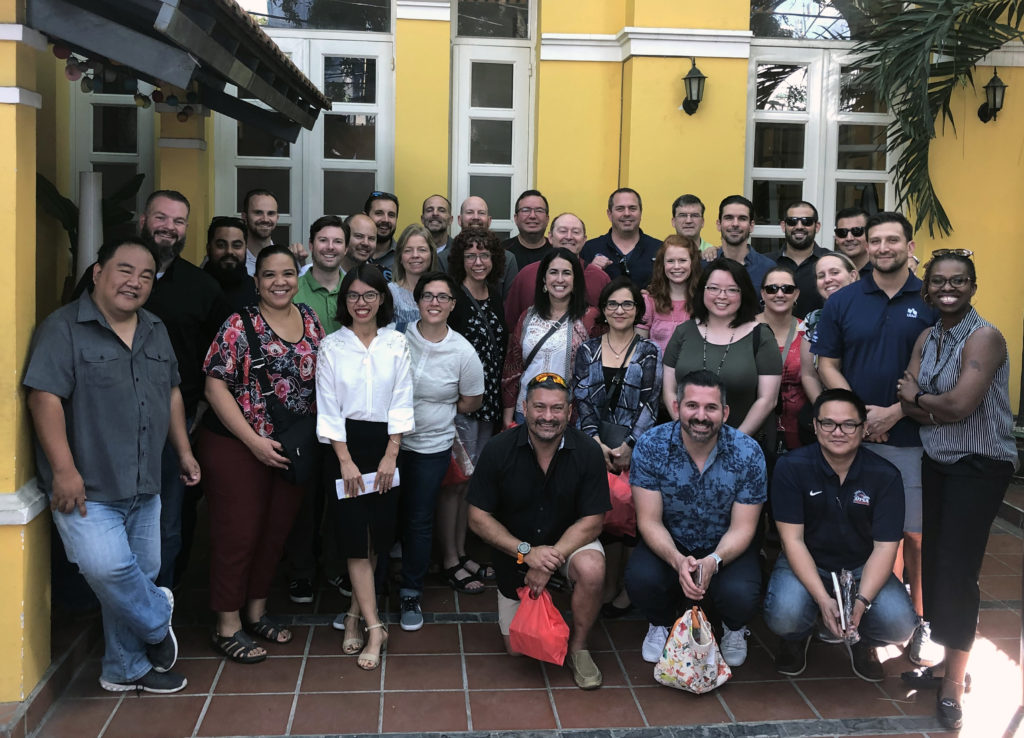Posted on February 15, 2019 by Wendy Frost
 Integrating what they’ve learned in the classroom, this year’s graduating class participated in an international trip to Singapore and Vietnam.
Integrating what they’ve learned in the classroom, this year’s graduating class participated in an international trip to Singapore and Vietnam.“The purpose of the international trip is to provide students with diverse perspectives on how business is conducted around the globe,” said Bruce Rudy, senior executive director of the Center for Professional Excellence and associate professor of management. “This year we selected a developed and an emerging economy in Southeast Asia.”
As part of the 10-day trip, the students learned about technology and innovation at Dell in Singapore and visited several manufacturing plants in Vietnam. At Crocs HCMC the students were surprised with their manual production process which included trimming and smoothing the shoes with hand tools. In contrast, they also visited Esquel Garment Manufacturing Co., Ltd. a global textile and apparel manufacturer, who had a vertically integrated supply chain.
“Singapore lived up to its reputation as the place to do business in Southeast Asia,” said EMBA student James Cox. “The shift to Vietnam was drastic. Consider that Ho Chi Minh City (Saigon) is smaller in area than Bexar County, but the population of Bexar County is 1.96 million, and the population of Ho Chi Minh City is 8.45 million. With that many people in a small area, you cannot help but feel the energy.”
The trip to Vietnam had personal significance for EMBA student Betsy Smith. “I never imagined I would visit Vietnam 50 years after my father started his tour of duty in the nearby Mekong Delta,” said Smith. “He talked about the differences between patrolling the Delta and visiting the big city of Saigon. Fifty years later the differences are still pronounced.”
Social Enterprises
In Vietnam, their final visit was to KOTO “Know One, Teach One,” a social enterprise founded by Vietnamese-Australian, Jimmy Pham. Learning about disadvantaged youth in the city and the barriers to education in rural areas, KOTO is inspiring change by sharing and passing along knowledge in culinary and hospitality training to young people.
“At KOTO, we heard stories about how they provide disadvantaged local youth with life skills and training for a future in hospitality,” said Smith. “Our presenter, a graduate of KOTO herself, shared her story, and I could not have predicted the emotional impact it would have on the class as a whole. This experience opened my eyes to the impact of social enterprise in an emerging economy. To me, KOTO represented what Vietnam is striving to be–self-sufficient, innovative and determined.”
Throughout the trip, participants were able to experience different examples of how government structures and cultures influence business. After a recent class debrief, Rudy shared, “It is clear that students came away from this experience with greater awareness of themselves and their impact as business leaders in a global economy.”

